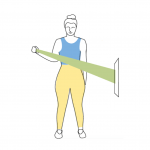To settle or not to settle, that is the question
In life we are constantly told not to settle. Don’t marry someone whom you don’t truly love. Don’t earn a second when you could earn a first. It’s implied that settling, while temporarily easier, will cause us to be less happy in later life. Is this always true?
When I first started swimming, I was very concerned about speed. Every time I went to the pool, I timed my sprints. If I was slower one week than the previous, I was very discouraged.
My obsession with speed transferred to open water. After completing my first 10km race, the Jubilee River Swim 2013, in 3:46, I was determined to complete my 2014 race faster. I clearly remember saying to my mother before the swim, “If I don’t finish in under 3:40, it will be a failure.”
My mother was furious with that comment. Completing a marathon open water swim is immensely difficult. She found it preposterous that I could finish the race and still think I had failed.
So when I finished the Kielder 10km swim in 4:36, my mother was very worried that I would exit the water upset. She needn’t have feared. The swim was more mentally and physically challenging than I’d expected. I was so thrilled to have finished that I wouldn’t have minded if it had taken me weeks.
After that, I worried less about times. I stopped meticulously recording every sprint in a pool training session and I ceased setting goal times for marathon swims. I instead focused on finishing the event as a great accomplishment.
This reduced my pressure and typically allowed me to enjoy swimming more. But every once-in-a-while, as I jump in the slow lane at masters swimming or place last in a race, I look at the results and I think, “I came in last. I failed.”
Did I make the right the decision to settle for finishing being a great enough accomplishment?
I haven’t only settled in swimming. Since completing my PhD in chemistry in December 2014, I’ve wondered why I became a chemist. The truth is, I settled. Many times.
When I finished high school, I wanted to be a journalist (as my frequent H2Open blogs prove). I settled for science because I thought it had greater career potential.
After finishing my undergraduate degree, I wanted to take time off to find and pursue my passion. But I received a scholarship for graduate school, so I settled to start a doctorate.
Halfway through my PhD, I fell in love with Britain and wanted to transfer to the University of Bristol. But that would have added a year onto my programme, so I settled to do a temporary exchange. Were these the right decisions?
Most recently, the concept of settling has arisen with my parents. As I age, I am pulling away from the Jewish traditions in which I was raised.
My mother and father are very resistant to this, worrying that my choices will not lead me to a happy life. So they criticise my decisions that are not in-line with their beliefs. This causes me to pull away from my parents because I don’t want to face their disapproval. I could settle to be the daughter that they expected me to be. But I will not. Is that the right decision?
Nelson Mandela once said: “There is no passion to be found in settling for a life that is less than the one you are capable of living.”
This could be interpreted as meaning that one should attack every aspect of life to achieve the most from it. Only this will make you happy.
But I interpret the advice differently. I think it means that overall you need to get the most from life. But sometimes you must make sacrifices in one area to allow yourself opportunities in another. I could work harder at swim training but then I would not also be a runner. I could have chosen my academic options more carefully but then I might have missed the amazing international travel and swimming I experienced. I could be a better daughter but then I would not be the truest version of myself. On that, I will not settle.
Never settle for a life that is less than the one you are capable of living. But you can occasionally settle within life to have the best life overall.
As a swimmer, how important is it for you to place first? To finish? To start? Choose the goal that will make you happiest and don’t settle for anything less.






